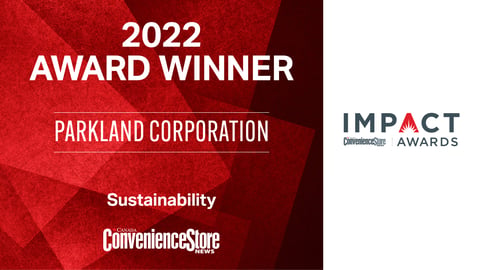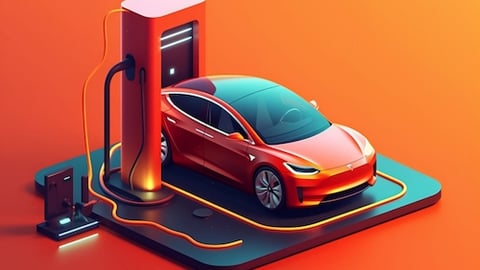Parkland to expand EV charging network in Canada
Parkland Corporation announced that it has secured up to $210 million of financing from Canada Infrastructure Bank (CIB) to support the continued multi-year growth of its electric vehicle charging network.
Parkland's existing EV charging network is primarily located in British Columbia which has the highest proportion of EV drivers in North America. Co-located with its retail fuel sites, Parkland has 37 locations already operational and is on track to have 50 charging locations in operation by early 2024.
“Our initial investments in EV charging have been positive,” says Darren Smart, SVP energy transition and corporate development. "Strong customer utilization has validated our strategy to build scale in markets with tangible demand and has confirmed our belief that a high-quality customer experience matters. I want to compliment the CIB, on their financing model which helps incentivize and de-risk investments in EV charging. We will be strategic in deploying this financing to expand our charging network, while also exploring additional third-party capital opportunities to fund our own, and potential third-party sites.”
“By investing in charging infrastructure, we can support EV adoption and help to significantly reduce transportation sector greenhouse gas emissions. Our financing agreement with Parkland paves the way for up to 2,000 public fast charging ports to come online across Canada,” says Ehren Cory, CEO, Canada Infrastructure Bank. “Since the launch of our Charging and Hydrogen Refuelling Infrastructure initiative, we moved quickly to collaborate with the private sector and are nearing our initial investment target of $500 million. As part of the increased sector target for Green Infrastructure, which is now $10 billion, we will continue to meet the strong market demand for this initiative and expand the availability of charging infrastructure.”
CIB has provided an 18-year financing facility on attractive financial terms, including principal repayments which are tied to utilization of the installed EV chargers. CIB will fund up to eighty percent of capital deployed to install the chargers over four years, significantly de-risking the expansion of Parkland's EV charging network. Parkland has created a specific project finance entity for this CIB financing, which is non-recourse to Parkland.
CIB adds that this agreement with Parkland paves the way for the installation of up to 2,000 new charging ports at up to 400 sites and represents the CIB's second investment under its Charging and Hydrogen Refuelling Infrastructure (CHRI) initiative. By providing loans towards the buildout of electric vehicle charging infrastructure, the CIB initiative aims to alleviate range anxiety and accelerate EV adoption, which will significantly reduce transportation sector greenhouse gas emissions.
According to Natural Resources Canada, on-road transportation accounts for 18% of Canada's total greenhouse gas emissions, of which about two-thirds are produced by light duty vehicles or passenger cars.
The CIB investment is designed to mitigate risks such as uncertainty in the rate and pace of EV adoption and charger utilization, which have historically been barriers to private investment in charging infrastructure. To date, CIB investments in electric vehicle charging infrastructure will enable the installation of approximately 4,000 public fast charging ports across Canada.
“We're making electric vehicles more affordable and charging more accessible where Canadians live, work and play. Investing in more EV chargers, like the 2,000 public fast chargers announced today across Canada, will put more Canadians in the driver's seat on the road to a net-zero future and help achieve our climate goals,” says The Honourable Jonathan Wilkinson, Minister of Energy & Natural Resources.




